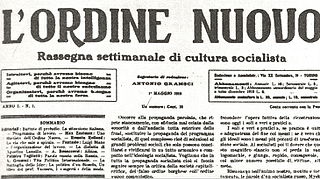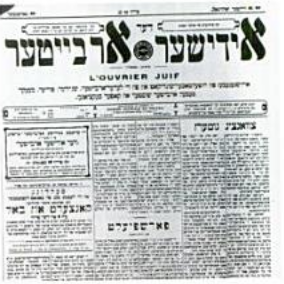Related Research Articles

Estelle Sylvia Pankhurst was an English campaigner for the suffrage and suffragette movement, a socialist and later a prominent left communist and activist in the cause of anti-fascism and the international auxiliary language movement. She spent much of her later life campaigning on behalf of Ethiopia, where she eventually moved.

The Independent Labour Party (ILP) was a British political party of the left, established in 1893, when the Liberals appeared reluctant to endorse working-class candidates, representing the interests of the majority. A sitting independent MP and prominent union organiser, Keir Hardie, became its first chairman.

Barre is the most populous city in Washington County, Vermont, United States. As of the 2010 census, the municipal population was 9,052. Popularly referred to as "Barre City", it is almost completely surrounded by "Barre Town", which is a separate municipality.

Huddersfield is a constituency represented in the House of Commons of the UK Parliament since 1983 by Barry Sheerman of Labour Co-op.
James Bell was a British trade unionist and Labour Party politician who represented Ormskirk from 1918–22. He was described by a fellow union official as "one of the shrewdest negotiators the trade unions in the cotton industry had ever had."
The Clarion was a weekly newspaper published by Robert Blatchford, based in the United Kingdom. It was a socialist publication with a Britain-focused rather than internationalist perspective on political affairs, as seen in its support of the British involvement in the Anglo-Boer Wars and the First World War.

Joseph Burgess (1853–1934) was a British journalist, writer and Labour politician.
The Flemish Socialist Workers Party was a political party in Belgium. In May 1877 different organizations from Brussels, Antwerp and Ghent had assembled and decided to launch a joint party. VSAP was founded on a congress held in July 1877. The programme of VSAP was largely similar to the Gotha Programme of the Social Democratic Party of Germany.
The Labour Elector was a British socialist publication. The Labour Elector was edited by Henry Hyde Champion and published from London. The newspaper was sold at one penny. The founding of the newspaper was preceded by the May 1888 Southampton by-election, in which Champion's Labour Electoral Association had helped ensure the electoral victory of the liberal candidate Francis Evans. The Labour Elector argued in favour of the foundation of an 'Independent Labour Party'.

L'Ordine Nuovo was a weekly newspaper established on 1 May 1919, in Turin, Italy, by a group, including Antonio Gramsci, Angelo Tasca and Palmiro Togliatti, within the Italian Socialist Party. The paper was the successor of La Città futura, a broadsheet newspaper. The founders of L'Ordine Nuovo were admirers of the Russian Revolution and strongly supported the immediate creation of soviets in Italy. They believed that existing factory councils of workers could be strengthened so that they could become the basis of a communist revolution. However, Amadeo Bordiga, who would become the founder of the Communist Party of Italy, criticised the plan as syndicalism, saying that soviets should only be created after Italy had come under communist control.

Der yidisher arbeyter was a Yiddish-language labour movement journal published from Paris, France. It was the first full-fledged Jewish labour periodical in the country, and catered to the Jewish branches of the Confédération générale du travail (CGT). It was the monthly organ of the Intersektionen Byuro, the coordination of Jewish trade union branches of the CGT. The first issue appeared on October 9, 1911. Der yidisher arbeyter represented a crossroads between the French labour movement and the Central and European Jewish culture.
Charles Allen Clarke (1863–1935), most widely known as C. Allen Clarke, was an English working-class humorist, novelist, journalist and social investigator from Lancashire. An ILP member and friend of Robert Blatchford, Clarke succeeded Joseph Burgess as editor of the Yorkshire Factory Times.
The following is a timeline of the history of the city of Burlington, Vermont, USA
The United Textile Factory Workers' Association (UTFWA) was a trade union federation in Great Britain. It was active from 1889 until 1975.

Socialist Worker is the name of a number of far-left newspapers currently or formerly associated with the International Socialist Tendency (IST). It is a weekly newspaper published by the Socialist Workers Party (SWP) in the United Kingdom since 1968, and a monthly published by the International Socialists in Canada. It was a monthly published by the International Socialist Organization (ISO) in the United States from 1977-2019, and a biweekly published by the Socialist Workers Party in Ireland, a quarterly published by the International Socialist Organisation in Zimbabwe and a monthly published by the former International Socialist Organisation in Australia. Socialist Worker was also the name of an IST political group in Aotearoa/New Zealand.

Thomas Russell Williams was a British socialist politician.

Sarah Reddish (1850–1928) was a British trade unionist and suffragette, who was active in the cooperative movement. A supporter of women running for local elections as a springboard to gaining national voting rights, she ran for office on the Bolton School Board and was successful in her second attempt in 1899. She also ran for office as a Poor Law Guardian, and was successful, but was defeated in her attempt to become a member of the borough council. As a textile worker, Reddish knew first-hand the conditions and wages women experienced and joined unions, working as a paid organiser to help women improve their situations. She was both a socialist and a radical feminist, urging women's equality in the public sphere.
The Blackburn and District Weavers' Winders' and Warpers' Association was a trade union representing cotton industry workers in Blackburn, Lancashire, in England. One of the earliest weavers' unions to endure, it formed a model that many others copied, and was at the centre of early attempts to form a regional federation of cotton trade unions.
Arthur Dawson was a British trade unionist and politician.
References
- ↑ Howell, David. British Workers and the Independent Labour Party, 1888-1906 . Manchester [Greater Manchester]: Manchester University Press, 1984. p. 178
- 1 2 Mutch, Deborah. English Socialist Periodicals: 1880-1900 : a Reference Source . Burlington, VT: Ashgate, 2005. p. 3
- ↑ Mutch, Deborah. English Socialist Periodicals: 1880-1900 : a Reference Source . Burlington, VT: Ashgate, 2005. p. xiv
- ↑ Mutch, Deborah. English Socialist Periodicals: 1880-1900 : a Reference Source . Burlington, VT: Ashgate, 2005. p. xxiv
- ↑ Mutch, Deborah. English Socialist Periodicals: 1880-1900 : a Reference Source . Burlington, VT: Ashgate, 2005. p. xxviii
- ↑ 17th-21st Century British Newspapers Archived 26 September 2009 at the Wayback Machine
- ↑ Newsplan - Yorkshire Factory Times (Huddersfield)
- ↑ Weckerlein, Friedrich. Streitfall Deutschland: die britische Linke und die "Demokratisierung" des Deutschen Reiches, 1900 - 1918 . Veröffentlichungen des Deutschen historischen Instituts in London, 34. Göttingen: Vandenhoeck und Ruprecht, 1994. p. 276
- ↑ Huddersfield Publications Archived 4 December 2010 at the Wayback Machine